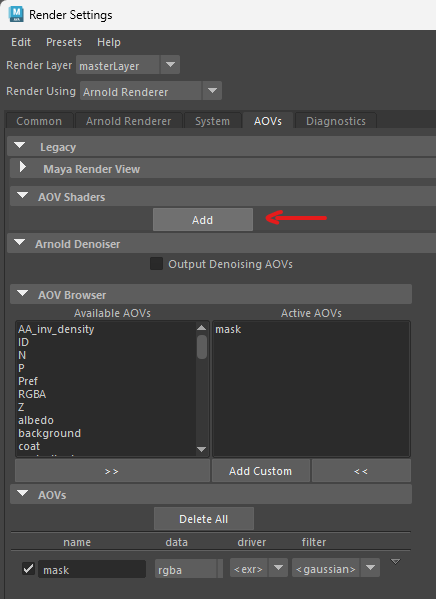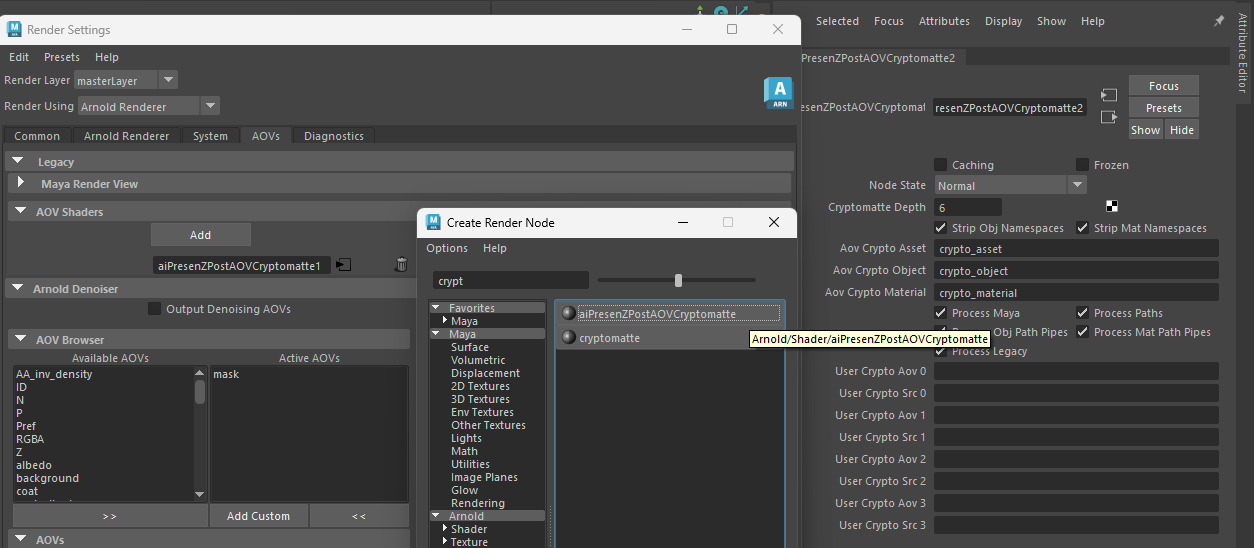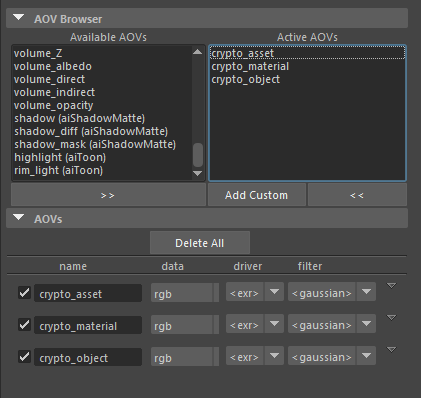Arnold Specifics
Rendering Glass in Arnold for Maya
To render glass in Arnold simply use the “glass tagging” button from the toolbar. Tag a selected object you wish to appear transparent. PresenZ for Arnold will adapt your glass shader into a PresenZ Glass shader automatically and render both opaque and transparent objects in the same pass.
Using Cryptomatte
Starting with V-Nova PresenZ 4, you can render Cryptomatte AOVs. Cryptomatte is an ID matte creation tool developed by Jonah Friedman that automatically generates ID mattes. You can organize ID mattes in the scene based on names, object namespaces, and material names.
Adding Cryptomatte to Your AOVs
To begin, add the PresenZ Cryptomatte shader to the list of AOV shaders. Due to the volumetric nature of V-Nova PresenZ, a depth value of 6 is generally sufficient in most cases.


Available Cryptomatte AOVs
Next, you can add the following Cryptomatte AOVs from the AOVs panel:
crypto_asset: Generates a matte for all assets.
crypto_material: Creates a matte based on the assigned shader.
crypto_object: Generates a matte based on the object’s name.

Restrictions
Currently, user-defined Cryptomatte is not supported, even though the option may appear available.
Usage
Houdini Plugin
The Houdini plugin include a node that allows you to select objects based on their corresponding hashes. These hashes can be found in the .json file generated during the rendering process.
Nuke Plugin
The Nuke plugin is fully compatible with PresenZ Cryptomatte. Additionally, it includes a utility node designed to simplify object selection within the workflow.
For additional assistance, please refer to the official documentation for these plugins.